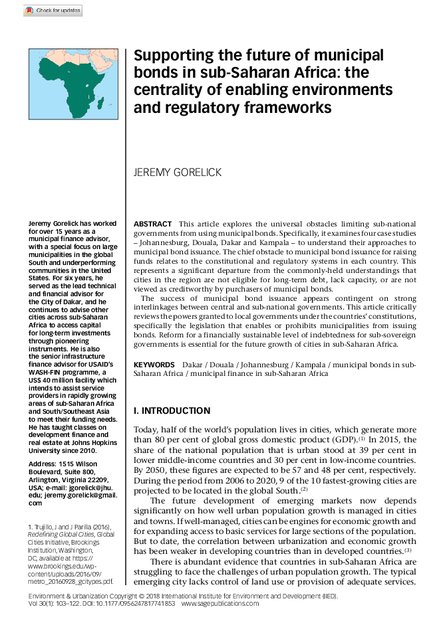
This article explores the universal obstacles limiting sub-national governments from using municipal bonds. Specifically, it examines four case studies – Johannesburg, Douala, Dakar and Kampala – to understand their approaches to municipal bond issuance. The chief obstacle to municipal bond issuance for raising funds relates to the constitutional and regulatory systems in each country. This represents a significant departure from the commonly-held understandings that cities in the region are not eligible for long-term debt, lack capacity, or are not viewed as creditworthy by purchasers of municipal bonds.
The success of municipal bond issuance appears contingent on strong interlinkages between central and sub-national governments. This article critically reviews the powers granted to local governments under the countries’ constitutions, specifically the legislation that enables or prohibits municipalities from issuing bonds. Reform for a financially sustainable level of indebtedness for sub-sovereign governments is essential for the future growth of cities in sub-Saharan Africa.
Links
Resource collections
- Prioritisation
- UN Habitat - Urban Response Collection
- Urban Response - Urban Crisis Preparedness and Risk Reduction
- Urban Response Collection - Community Engagement and Social Cohesion
- Urban Response Collection - Economic Recovery
- Urban Response Collection - Environment and Climate Change
- Urban Response Collection - Housing, Land and Property
- Urban Response Collection - Urban Crisis Response, Recovery and Reconstruction
- Urban Response Collection - Urban Resilience